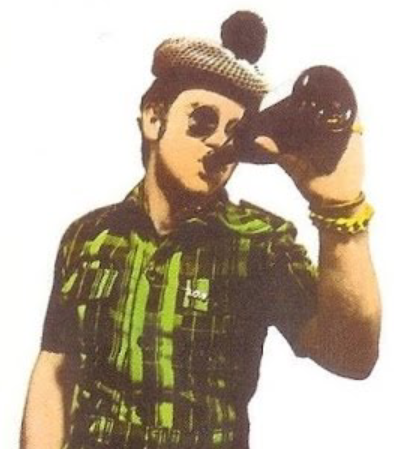I’ve been curious how many working researchers we’ve got in this community, and what you all do!
If you’re working in science (physical or social), engineering, etc in a research capacity, give a shout in the comments and let us know what you work on! Same goes for students and amateur scientists at any level. (And by amateur I mean those of you who are working on your own experiments but just not being paid for it / not working on a degree; I’m upset that “amateur” has a negative connotation, it shouldn’t.)
I’m currently a PhD candidate, working on transmission electron microscopy and electronic materials (mainly ferroelectrics). In the past I’ve been involved in research / product development in a few different industries, including medical devices, aerogels, and materials for RF devices.
I’m a research professor of neurology, and my research focuses on developing novel cognitive assessments for measuring early-stage Alzheimer’s disease and other types of dementia.
That’s a field where it seems (to an outsider) like a lot has been happening recently! Glad to have you here!
You’d be correct! The new anti-amyloid drugs are very exciting, and it makes my work on preclinical Alzheimer’s even more fulfilling as it can have a real impact on getting people tested and treated as early as possible.
I have my PhD in physics with a background in material science and primarily work in Pharma developing early stage biologics programs (antibodies, gene therapies, etc). That means basically any of the molecules I have worked on are maybe 5+ years away from reaching the market. I don’t meet many other physicists in this field, instead it is primarily chemical engineers and biochemists. Even working in industry, I still have the chance to publish and attend conferences though.
A lot of my classmates from undergrad chemical engineering went into pharma, so I’m not surprised there are a lot of them around!
I still have the chance to publish and attend conferences
That’s good! One of the things I’ve liked most about my time in grad school has been attending conferences and getting to meet the other people working in the field face-to-face. I hope that wherever I land after this will be happy to let me continue to attend conferences.
I’m working on my Astrophysics PhD. I study “galactic cannibalism” aka how galaxies grow and change by eating smaller galaxies. My big focus is on teaching and outreach though rather than research.
Cool! Is this the kind of thing that’s going to happen between Andromeda and the Milky-way, or is that fundamentally different because they’re more similar in size?
It’s science-y enough but I’m definitely not considered a scientist so much as a technologist. I work as a MRI (Magnetic Resonance Imaging) Technologist. Previously a X-Ray Technologist.
My machine does all the science for me but it’s a pretty neat concept. Using magnetic gradients and RF pulses at hydrogen protons to acquire accurate digital imaging.
Happy to have you! The science behind MRI is fascinating, and the machines themselves are really cool. Have you ever seen a magnet quench? I don’t think they’re really supposed to happen during normal operation, but some of the videos I’ve seen have been rather dramatic.
It is pretty crazy people were able to figure that all out and we are able obtain crazy detailed pictures without radiation.
No I haven’t seen it! Hoping to see a controlled quench someday but also hoping to avoid needing to use it in any emergency situations; it’ll have to be a damn near life/death situation to hit that button. Very costly decision. I guess there’s also a dwindling supply of helium in the world so that could get interesting as time goes on.
Yeah, helium being a finite resource was something that really surprised me when I first learned about it! Better to keep it inside the MRI as much as possible for sure
I’m a PhD candidate too - my contract is finished now, but I am still writing my thesis. So I am currently at the awkward intersection of finishing a thesis and looking for a job.
My PhD focus is in applying time-resolved spectroscopic techniques to study the excited state dynamics of molecules. Basically, these are experiments in which a pulsed laser is used to excite the sample and a second probe light is used to measure a change in the absorption in response to the light. By measuring these changes in the absorption as a function of time, and applying quantum chemical techniques to calculate the spectra of potential intermediates, one can sort of recreate a molecular movie of what the molecule is doing after it absorbs light with a time resolution of femto to picoseconds. The materials that I study are organic dyes that are useful for microscopy, as well as molecules that respond to EUV light for applications in photonanolithography (for making the very small transistors in computer chips).
I am also an “amateur” scientist when it comes to biology, as many of my hobbies are nature-based and it’s not like I can turn off the science bug when it comes to hobbies.
Well that’s fascinating! The technique sounds a little bit like a cross between Raman and EXAFS/XANES? (Probably just because those are two techniques I happen to be familiar with though.)
Raman and EXAFS/XANES are techniques to probe different types of molecular transitions. Vibrational raman probes molecular vibrations, and XANES probes electronic transitions due to excitation of core electrons. Each technique will help you obtain different molecular properties. The standard approach is to apply these methods to do “static” absorption studies, meaning that one studies the transitions induced by these light sources in order to obtain molecular information of a given sample. The time-resolved techniques expand these measurements along the time dimension, so you can measure these properties but in a sample that is changing extremely quickly in response to a trigger (usually light).
So, it is not that the technique is a cross between these, but rather an approach to take Raman, or XANES, or IR-spectroscopy, or UV/Vis absorption spectroscopy, and then apply it in a time-resolved manner. You can usually take any spectroscopy technique and add “time-resolved” at the beginning and you will find someone doing that. Of course, some techniques are easier to perform in practice than others. I have done some time-resolved XANES experiments, and for those we need to go a synchrotron and the experiment is really tricky. A time-resolved UV/Vis can be done in many university labs. I don’t have practical experience with Raman experiments.
I’m a software developer who works on Backend/APIs/Cloud/AI.
Currently browsing Lemmy instead of actually doing work in my home office…
Currently browsing Lemmy instead of actually doing work in my home office…
Some days just turn out that way lol
I’m a PhD in chemical engineering and work in a testing laboratory for electrical engineering insulating materials. My dissertation was using predictive modelling (some data mining and machine learning, some more classical statistical methods) to estimate material properties from spectral data. I’m trying to combine a full-day engineering job with writing more journal articles in my spare time. Currently not going well but at least I’m not lacking for data!
Haha that sounds like it must be keeping you real busy! I’m currently spending most of my days writing and it takes up so much time on its own I can’t imagine trying to combine that with a full time job. More power to you!
I see from elsewhere in the thread that you did chemical engineering as an undergrad so – hi, colleague! :) My PhD took a very long time to finish and I would never ever recommend combining industry with academia. I’m a masochist I guess.
Have you done any work with liquid ferroelectrics (e.g. https://doi.org/10.1016/S0304-8853(99)00066-9)? Those were all the rage in my field because they were expected to enhance convection cooling and the dielectric properties of liquid-cooled equipment significantly. Then they just… fizzled out.
I’ve not! My work has been exclusively solid-state materials so far – they’re just much easier to observe in the TEM. It’s not impossible to do TEM on liquids / colloids, but it’s a pretty specialized technique that I’m only passingly aware of as a thing that’s possible. Seems like a pretty cool area though, I wonder why it fizzled out.
I’m a staff bioinformatics scientist at an academic institution, got my PhD a few years ago and wasn’t interested in a postdoc. I get to work on a huge range of research questions and lots of different technologies. It’s great!
Oh that’s rad! What’s it like being a staff scientist at an academic institution? I’m still trying to figure out exactly what I want to do after I graduate – I know I’m not interested in pursuing the tenure track, but I haven’t decided if I should go back into industry / look into staff science positions national labs / etc.
It has its pros and cons — I work on lots of projects and help with parts of grant writing, but I’m not the one guiding the big research goal/question (I appreciate that the questions are interesting but don’t care that much about the question usually). Because I work on so many projects I usually only have <1 full day a week to work on each one, so progress can be slow and managing expectations can be challenging. I am paid more than a postdoc but less than I would in industry. It is expected that I will mentor undergraduate students and teach workshops. These things might make a big difference re: how much you enjoy the job. Folks in this type of position are sometimes called research software engineers: https://society-rse.org/
Huh, that’s really interesting. I do like teaching, so that part sounds appealing (as does getting paid more than a postdoc!), so maybe it’s a route I’ll consider going forward. Thanks for your insight!
I’m a Data Scientist (physics PhD) for a large enterprise company. I’ve been in this field for the last decade and I’m kinda bored with it. I’m not exactly sure what to do next though…
Mmm yeah, I can imagine things might get a bit stale after a decade working on similar things. What was your physics PhD in, something you’d be interested in pursuing again maybe?
My thesis covered optoelectronic measurements of nanomaterials for novel photovoltaics. Even as a kid, I wanted some sort of career researching alternative energy, but those jobs sadly don’t exist.
Researching alternative sources of energy would certainly be a rewarding career. I’m a bit surprised to hear nobody’s doing it, I’d think there’d be companies trying to commercialize on the pretty massive progress we’ve seen in PV efficiency at the lab scale. I remember in my undergrad people were really excited about roll-to-roll manufacturing for flexible organic perovskite solar cells, but come to think of it I haven’t heard much about them in the last five years. I wonder what happened. Maybe just still to expensive to compete commercially with silicon PV?
Regardless, I hope you find a direction that’s fulfilling for you!
Yeah, it’s pretty hard to beat silicon. But, thanks so much for the well wishes! (I’m currently trying my hand as an Indie Game Dev, so we’ll see how that goes ha)
PhD candidate, archaeologist in a physical geography department. I read dirt to reconstruct ecosystems over time.
That sounds like a really interesting field! I can’t even begin to imaging all of the complexities but the basic idea you put forward (“read dirt to reconstruct ecosystems over time”) is very compelling.
I’m an associate professor in computer science, currently working on stochastic algorithms (like genetic algorithms).
Until now, I’ve been working on quite abstract optimization problems, but I’d like to switch to more useful applications, like social inequalities or climate change.
I get that. Working on a more abstract problem should, in theory, help solve more practical problems down the line, but sometimes it just feels less satisfying that working on something where you can see the real world application and (hopefully) results. I’m definitely looking to do something practical with my experience once I’m finished with my PhD.
I studied environmental science as a major and am working in hazardous waste site remediation, water and wastewater treatment, and dabble in assisting some civil engineering projects.
That’s very cool! One of my friends in undergrad did a co-op working with a wastewater / hazardous waste treatment company. It seemed like a surprisingly (to me at the time) vibrant field, with lots going on!
It’s good to hear about people giving the industry a try! There is really so much career opportunity, and it’s not going anywhere. I’ve weather multiple recessions, housing crises, economic booms and downturns in this industry and it is just steady, because it is so essential. I hope more people consider it as a career because the field is suffering for lack of licensed professionals.
I am a welding Engineer working in a mixed role of failure analysis and research. Most of my projects are sustainability based.
Very cool! From the small bit I learned about welding in my classes it really seems like a topic with a lot of depth and nuance to it (that maybe sometimes goes unappreciated). Happy to have you 'round!
Honestly it’s one of my favorite things about welding engineering- it’s materials, physics, electrical, mechanical, manufacturing, automation, chemical… you get a bit of a lot of disciplines!
I’m doing my undergrad in physics
PhD in Geology. Now am a research scientist working in more general materials science/chemistry/gas adsorption. My thesis was on lunar petrology where I studied Apollo 16 samples. My current research is much less exciting. Haven’t touched a rock in ages and my geologist heart hurts from it haha
Dang we gotta get you some cool rocks!
(I’ve always kinda wanted to thinly section some rocks with nice big grains and put them in the TEM; so many natural minerals have really interesting crystal structures!)








